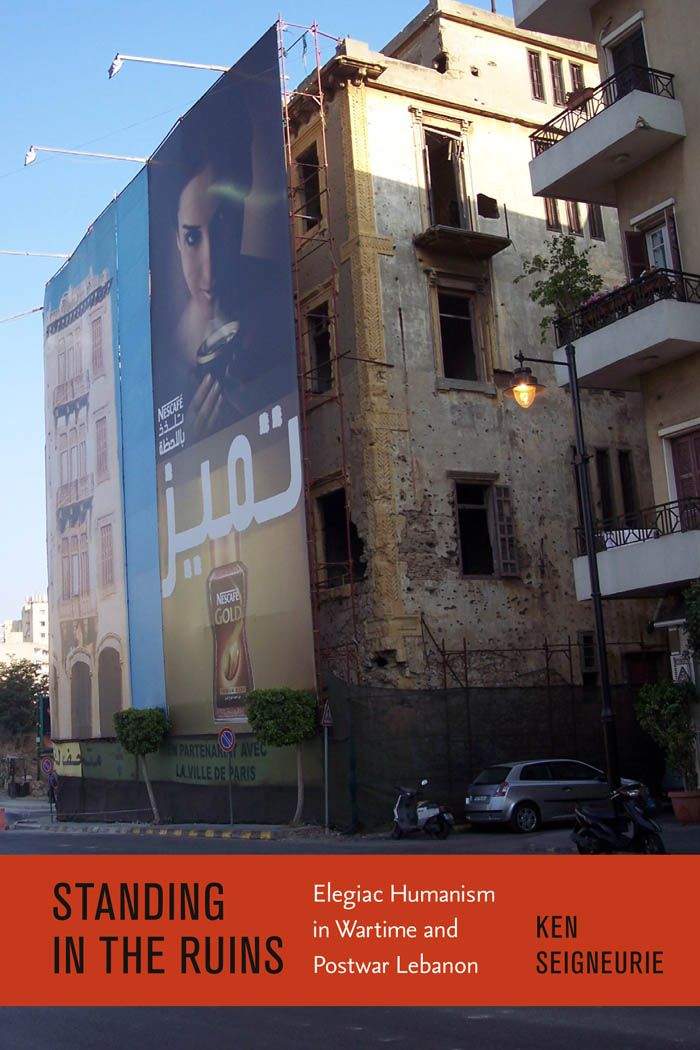Standing by the Ruins
Elegiac Humanism in Wartime and Postwar Lebanon

This book can be opened with

Since the mid-1970s, Lebanon has been at the center of the worldwide rise in sectarian extremism. Its cultural output has both mediated and resisted this rise. Standing by the Ruins reviews the role of culture in supporting sectarianism, yet argues for the emergence of a distinctive aesthetic of resistance to it.
Focusing on contemporary Lebanese fiction, film, and popular culture, this book shows how artists reappropriated the twin legacies of commitment literature and the ancient topos of “standing by the ruins” to form a new “elegiac humanism” during the tumultuous period of 1975 to 2005. It redirects attention to the critical role of culture in conditioning attitudes throughout society and is therefore relevant to other societies facing sectarian extremism.
Standing by the Ruins is also a strong intervention in the burgeoning field of World Literature. Elaborating on the great Arabist Hilary Kilpatrick’s crucial insight that ancient Arabic forms and topoi filter into modern literature, the author details how the “standing by the ruins” topos—and the structure of feeling it conditions—has migrated over time. Modern Arabic novels, feature films, and popular culture, far from being simply cultural imports, are hybrid forms deployed to respond to the challenges of contemporary Arab society. As such, they can take their place within a World Literature paradigm: they are cultural products that travel and intervene in the world.
In this prolonged meditation on violence and its traces, Seigneiurie surveys Lebanese cultural production and provides brief biographical sketches of writers and filmmakers at work. . . Plot summaries of fiction and film not readily available in the US make this book an especially valuable contribution to the growing body of scholarship on modern Arab culture. High recommended.——Choice
“An excellent study of the cultural production of Lebanese society resulting from the period of civil war.”——Roger Allen, University of Pennsylvania
Fascinating, eloquent, and tightly argued, Standing by the Ruins offers a distinctive perspective on relations between cultural productions and politics in times of extreme duress.Across a range of fascinating examples, Seigneiurie shows the ways in which novelists and filmmakers offer alternative visions in a collapsing world that can set the stage for new ways of imagining the future.——David Damrosch, Harvard University

